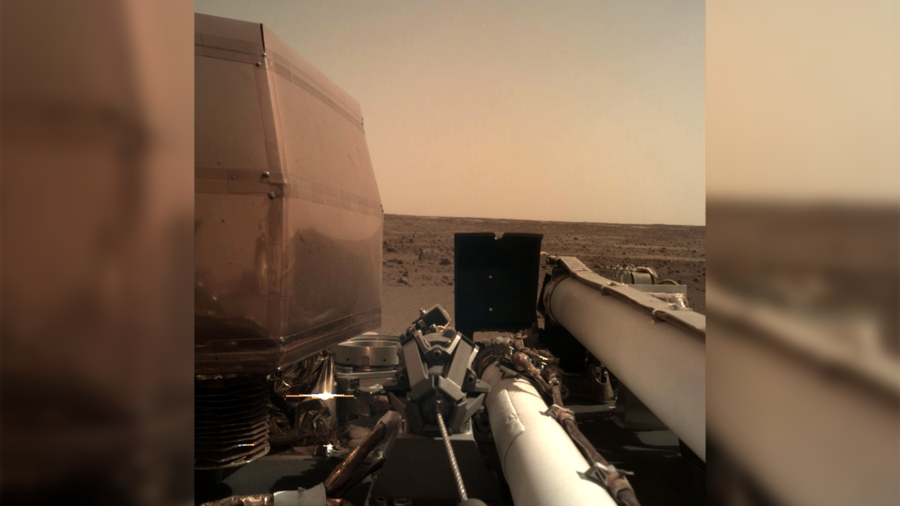NASA's InSight probe safely landed on Mars Monday after a tense seven-minute descent. The robot has now dusted itself off and has sent back the first images of its view on the surface of the Red planet.
The first image that came back was a smudged, fish-eye lense view of Mars. Thankfully, a later picture captured the Martian surface in better definition, without being obscured by the the translucent lens cap and dust that had made for such a grainy first impression.
The probe is currently sitting on the Elysium Planitia, a vast flat plain which NASA has dubbed the “biggest parking lot on Mars.” The device’s heat shield, parachute and rocket thrusters helped bring the craft to a gentle landing, having entered the Red Planet's atmosphere travelling faster than a speeding bullet back here on Earth, in the first such attempt since 2012.
The robot will not be spending the duration of its mission snapping landscape pics and selfies, however, but will instead conduct a core-to-crust investigation of the Red Planet's deep interior – the only planet apart from Earth that mankind will have studied in this way.
The notification confirming the device had deployed its solar panels, crucial to the longevity of the mission, came seven hours after touchdown thanks to the MarCO A and B, briefcase-sized satellites that relayed the mission data during the descent operation.
“Having successfully brought all the data back from InSight during its exciting entry, descent and landing (EDL) sequence – what you see before you is an image taken roughly 4,700 miles from Mars, about 10-15 minutes after EDL itself," explained MarCO chief engineer Andy Klesh.
The InSight mission has three main objectives: deploy French-British seismometers to measure any potential “Marsquakes”; activate a German “mole” which will burrow 16.4 feet (five meters) down to take temperature readings from the planet: and a third experiment will use radio waves to determine how Mars is wobbling on its axis.
“If you take a raw egg and a cooked egg and you spin them, they wobble differently because of the distribution of liquid in the interior. And today we really don't know if the core of Mars is liquid or solid, and how big that core is. InSight will give us this information,” Deputy project scientist Suzanne Smrekar said.
READ MORE: Elon Musk says there is a good chance he'll die on Mars
The inspiring moment that touchdown was achieved and the staff at Mission Control could finally breathe a sigh of relief and celebrate was also shared by NASA:
Think your friends would be interested? Share this story!



